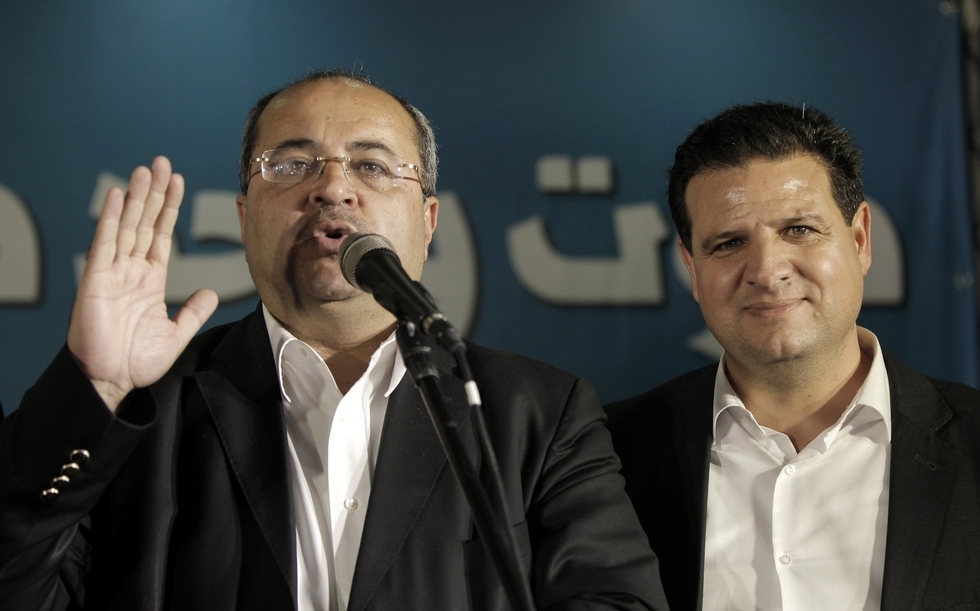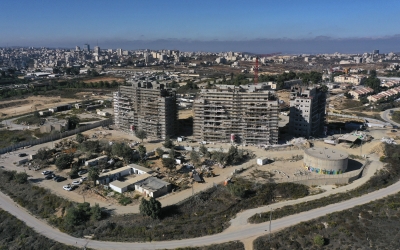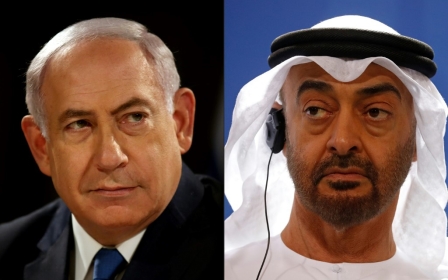Israel's Knesset approves UAE normalisation deal despite opposition from Arab Joint List

The Arab Joint List, the third largest political bloc in Israel's parliament, voted against the normalisation deal between Israel and United Arab Emirates (UAE) in the Knesset on Thursday, but the agreement was still approved in a 80-13 majority vote.
On Monday, the Israeli cabinet had approved the so-called Abraham Accords which were signed by the UAE, Bahrain and Israel on 15 September in Washington.
New MEE newsletter: Jerusalem Dispatch
Sign up to get the latest insights and analysis on Israel-Palestine, alongside Turkey Unpacked and other MEE newsletters
Palestinians have called the normalisation deal an Arab "betrayal" and a "stab in the back," arguing it violates a longstanding pan-Arab position that Israel could normalise relations only in return for land.
In a statement on Thursday, the Joint Arab List said "replacing the principle of land for peace with Netanyahu's deceptive vision of peace for peace will bring disaster to the country and all its people.
"This approach ensures the continuation of the conflict, suffering and bloodshed."
Ayman Odeh, chairman of the Joint Arab List, said the only deal that would bring peace and prosperity to the region would be a peace agreement creating an independent Palestinian state alongside Israel.
"The deal being signed today is part of Trump's dangerous vision that... will perpetuate the military regime on millions of Palestinians, the settlements and the outposts," he wrote in a tweet before the vote.
'Secret appendix'
In his opening remarks to the Knesset at the start of the debate on Thursday, Israeli Prime Minister Benjamin Netanyahu said "this is a day with few like it in the history of the country; a day when a peace agreement with an Arab state is brought for approval by the Knesset".
Former defence minister Moshe Yaalon said he would boycott the vote in protest that the agreement had a secret addenda that had not been presented in full to lawmakers.
Yaalon demanded the full deal be brought for approval by the legislators after reports revealed it included a "secret appendix about advanced weaponry that could have a critical impact on Israel’s strategic military advantage in the region".
"My request was denied, time has passed and the deal was signed," Yaalon told The Jerusalem Post, adding that Netanyahu had concealed portions of the deals from the Knesset and the security cabinet.
In his address on Thursday, Netanyahu asserted that the accord with Abu Dhabi did not contain "any secret annex or hidden agendas."
The US and the UAE are expected to sign an arms deal alongside the Israel-UAE normalisation agreement in the next few weeks that will see Washington supply the Gulf state with, among other things, advanced F-35 stealth fighters.
Gulf visit
With lawmakers supporting the deal, the agreement will now return to the cabinet for ratification and if approved enter into force for Israel, but full diplomatic relations between the two countries will not be established until the UAE ratifies the agreement as well.
The normalisation agreements do not mention a Palestinian state nor a two-state solution, which have been considered a cornerstone of diplomacy dealing with the Palestinian-Israeli conflict.
Since the signing of the agreement in Washington, a number of collaborations between Israel and the UAE have been announced, including commerce, shipping, travel and music.
An Israeli delegation is reportedly planning to visit Bahrain on 18 October, accompanied by US officials.
On 19 October, they will visit the UAE, and the delegation will return to Israel the next day accompanied by an Emirati team.
The deal was presented as being in exchange for a suspension of annexation of Palestinian land in the West Bank, but this week plans for more than 2000 new buildings in settlements were brought to a session of the top committee of Israel's Civil Administration, the military body which oversees civil affairs in the occupied West Bank.
Middle East Eye delivers independent and unrivalled coverage and analysis of the Middle East, North Africa and beyond. To learn more about republishing this content and the associated fees, please fill out this form. More about MEE can be found here.





